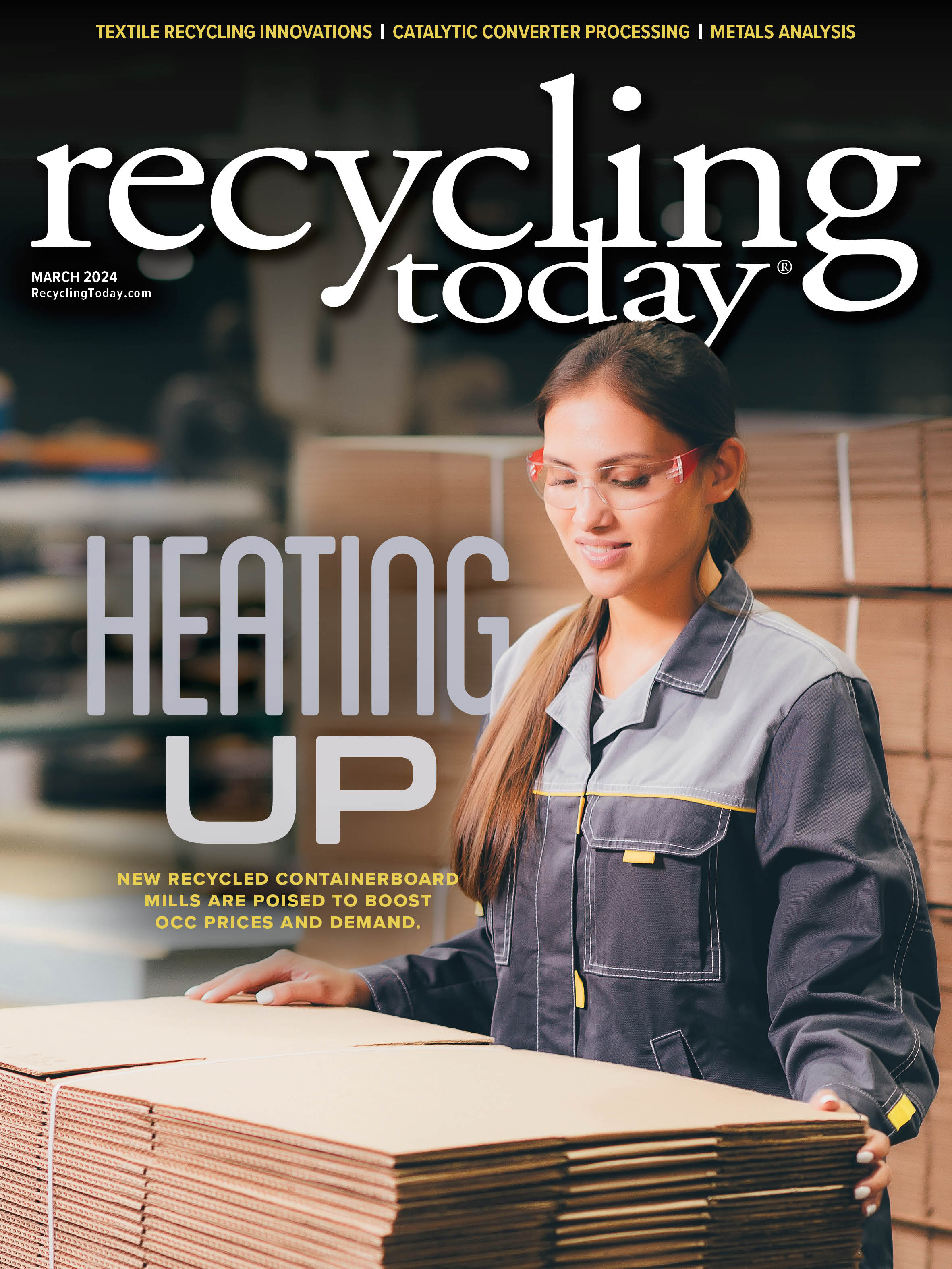
At Recycling Today, we’ve encouraged those in the industry—those doing the work to recover and recycle material critical to a functioning society—to be vocal about the essential work they do every day.
Sure, we have a vested interest as a publication dedicated to covering the ins and outs of recycling, but the implications are far greater than that—now more than ever.
The paper recycling industry, for example, is at a crossroads, especially when it comes to packaging.
Box demand fell to levels only seen during previous recessions and, through the first couple months of 2024, has not recovered enough to inspire much optimism, though packaging companies have reported slight increases in demand recently.
Despite that, 23 recycled containerboard conversions or capacity expansions have been made since 2017, according to data from the Brattleboro, Vermont-based Northeast Recycling Council presented at the Southeast Recycling Conference (SERC) in Florida in February.
"We can introduce process efficiencies ... to improve recovery, but if the material is not making it to recycling facilities to be processed, it only does so much good.”
The question of supply then becomes a concern. With demand low, old corrugated containers generation has been low, but something has to feed these new, highly efficient recycled paper mills.
In December 2023, the U.S. Department of Energy’s National Renewable Energy Laboratory released a report revealing that of the estimated 110 million tons of paper and cardboard processed domestically in 2019, approximately 56 percent were landfilled—almost 63 million tons—representing $4 billion in lost economic value.
What does that have to do with being vocal about recycling, especially if so much feedstock is supplied via commercial and industrial sources?
We can introduce new process efficiencies and technological advancements to improve material recovery, but if the material is not making it to recycling facilities to be processed, it does only so much good.
During the opening session at SERC, the panel was asked to sum up in one phrase the most important action recyclers can take to bolster the industry, and Michael Hoffman, managing director of St. Louis-based Stifel Financial Corp., simply said, “Tell your story.” He predicted telling the story of recycling will be a top trend in solid waste over the next decade.
With billions of dollars’ worth of material sitting in landfills and mills needing to live up to the capital investments they’ve made over the last several years, the economic implications are certain, but, even more than that, the world deserves to know the truth about this essential industry.

Explore the March 2024 Issue
Check out more from this issue and find your next story to read.
Latest from Recycling Today
- Connect Work Tools names new service manager
- Aaron Industries expands color capability
- Massachusetts voters support modernizing state Bottle Bill
- Oceana Canada poll shows support for single-use plastics ban
- Enviri releases annual ESG report
- Umicore sees lower revenues across all business groups for first half of year
- NEO Battery Materials, Lotus Energy Recycling to partner
- Partnership aims to convert industrial plastic scrap to synthetic graphene





